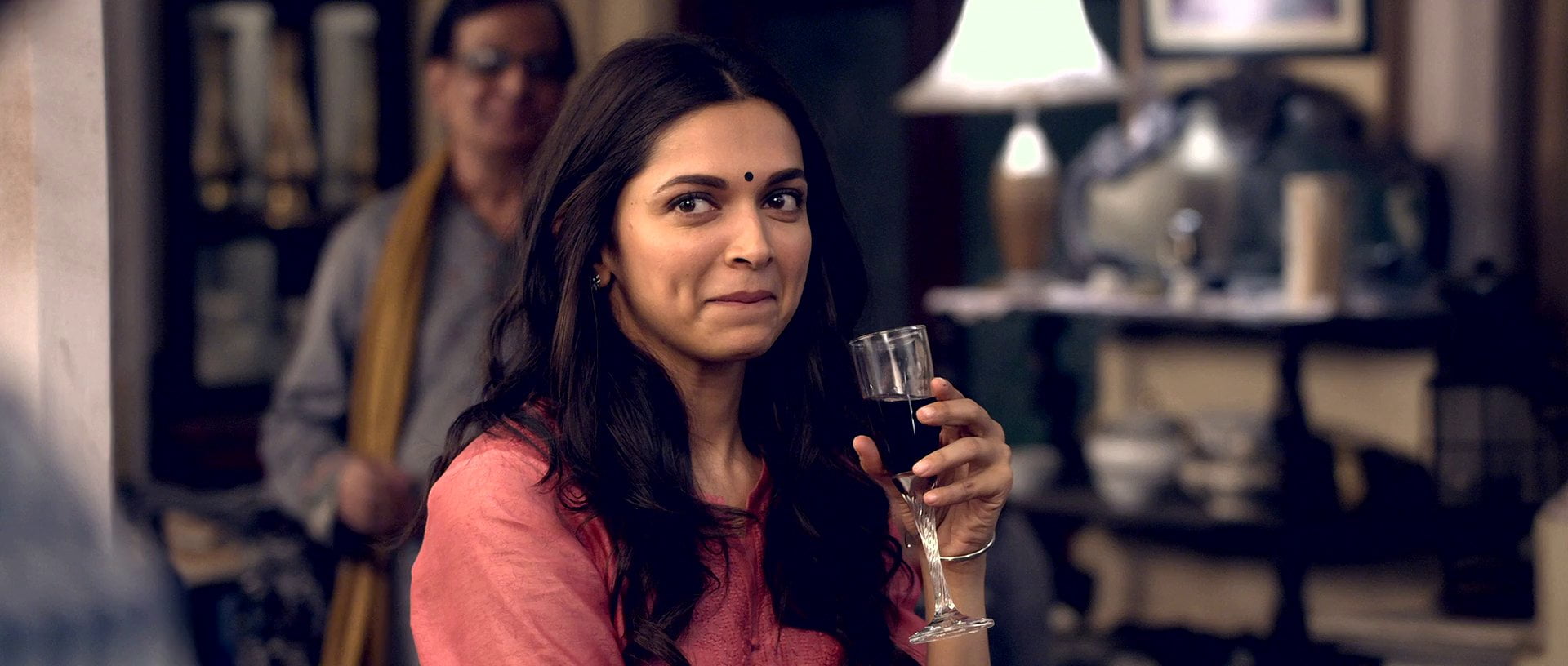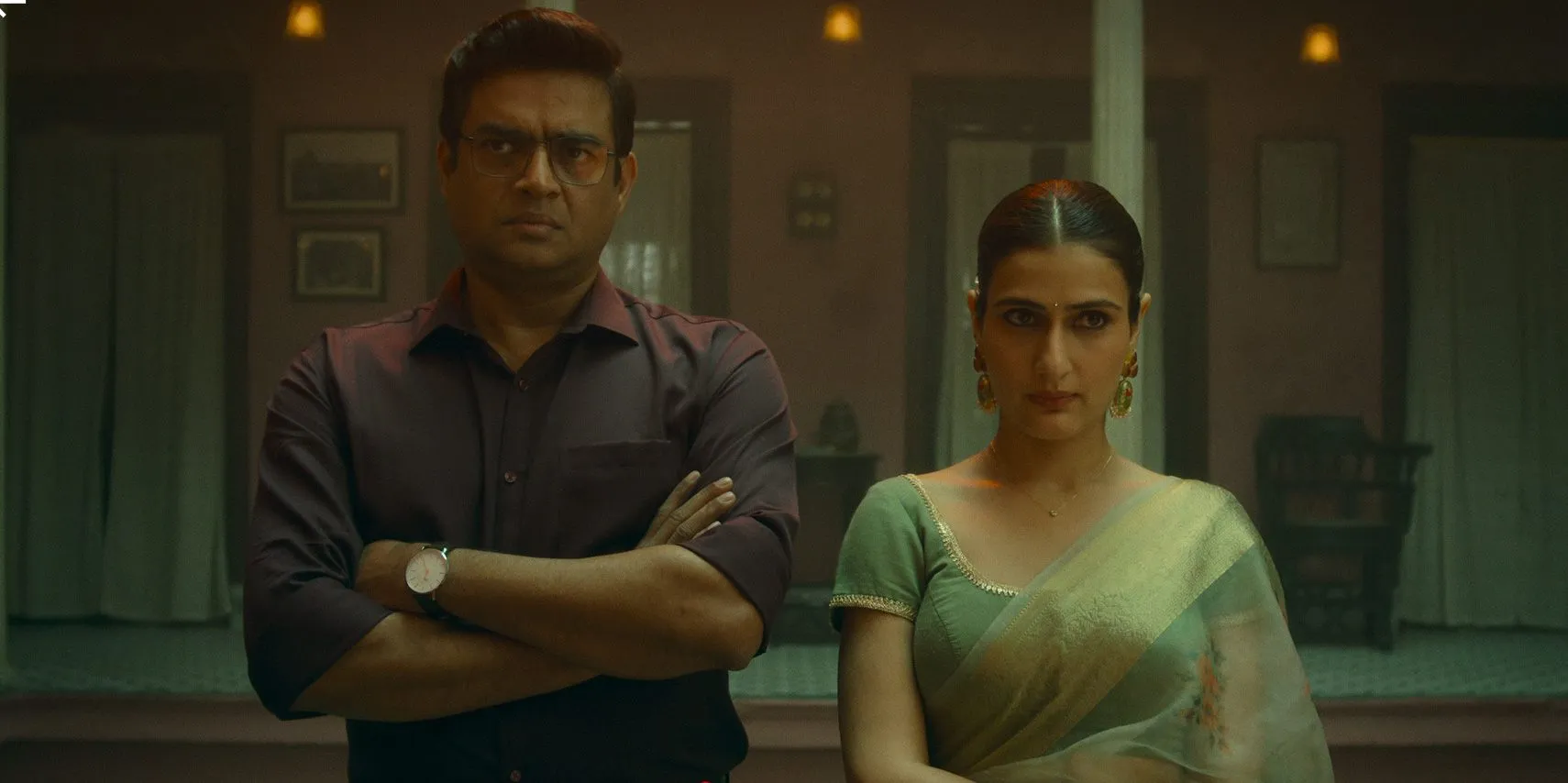Juhi Chaturvedi and Shoojit Circar’s Piku took Indian cinema for a spin back in 2015 when it was released. The Deepika Padukone, Amitabh Bachan starrer with the late Irrfan Khan as the ambiguous romantic cast took a delicate look at the interior lives of a father-daughter duo.
The sometimes comical always disruptive force of Piku’s father, consumed by the woes and paranoia of an empty stomach and ailing old age, is reliant on the bidding of his unmarried daughter. Her initial romantic counterpart in the plotline is barely given screen time, even within Piku’s life – the insignificance of a partnered relationship shines through the film while her life is mediated by the constant interruptions of her persistently worried father.
Piku’s romantic life or social life for that matter of fact, takes a backseat as the screentime is primarily focused on exploring the skirmishes and intricacies of this eccentric relationship with her hypochondriac father.
Piku is set against the female archetype of the subservient character whose character arc ends at the pedestal of marriage, her life isn’t consumed by the pathology of a husband but by the arrogance of her father, an irony in itself. Her father, however, appears to be a frontrunner against the domestication of women, and by extension, of his daughter.
Does his looming sometimes hilarious presence in his daughter’s life derive from his attachment to her? This question is more complicated when in a scene, Piku is introduced to a man in a conversation only for her father to interrupt and brazenly ask the man if he’s okay with his daughter not being a virgin.
The audience is left to wonder whether his refusal to get his daughter married is rooted in his self-proclaimed allyship, his deep-seated dependence on his daughter, or both. Does his looming sometimes hilarious presence in his daughter’s life derive from his attachment to her? This question is more complicated when in a scene, Piku is introduced to a man in a conversation only for her father to interrupt and brazenly ask the man if he’s okay with his daughter not being a virgin.
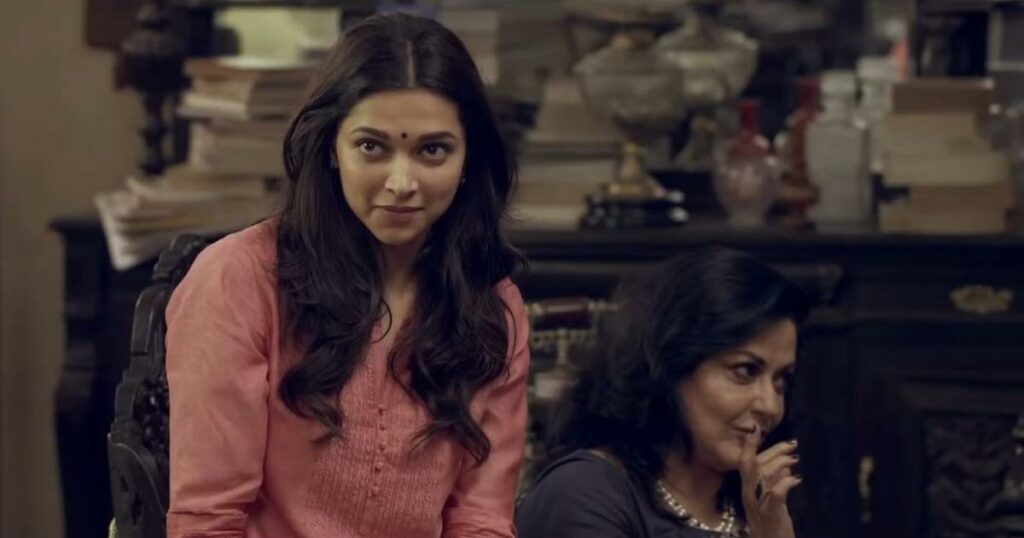
Another scene is set in Kolkata, where Bachchan is seen standing in the courtyard of his ancestral home with his younger brother reminiscing about his childhood, with the younger brother’s wife at work in the background. The conversation leads Bachchan to ask her why she had not taken up a job offer she had received in her earlier days. To which, she looks down and mumbles, “Because my salary would have been more than my husband’s.” Bachchan’s character promptly replies: “So?”
In another scene, he laments over his dead wife’s project of dedicating her whole life to his whims and fancies after their marriage.
Despite their seemingly difficult relationship, it only makes sense that Piku inherits the stubbornness of her Father, one that is palpable in her interactions with Irrfan Khan’s character, Rana, in the film. He drives the father-daughter duo to their ancestral home and he is seen winning over Piku rather subtly in how he wears down her father. A quiet resistance Piku is akin to, in her dealings with her father. Piku, now and again, is seen litmus testing Rana, wondering if and how he fits into her eccentric life.
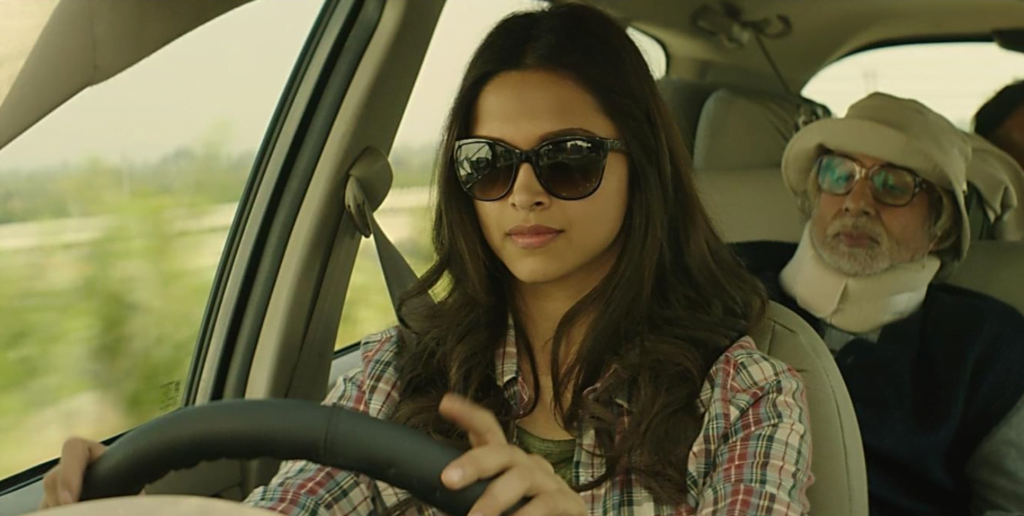
While Piku isn’t a feminist trailblazer, it does expose the bare skin of stories that move away from the cliched Bollywood romance. Oftentimes, Bollywood has followed in the footsteps of delivering hits that walk in the trail of women passing tests of the private and the public to gain the final approval, these films have been hits in their regard, oftentimes beautiful and comedic. Piku then forms the archive of mainstream films that don’t shy away from tapping into the interior lives of women and domesticity that doesn’t revolve around romantic interest.
This isn’t to say that the patriarch of the family is omitted and countered entirely, Bhaskor is a prevailing presence in the film as he strives to irritate his daughter, yet these squabbles are the very element that bring out this beautiful slice of life into the bigger picture. Piku moves away from the politically correct portrayal of women in cinema, there are blaring gaps and endearing bridges that leave the audience in splits of laughter and thought at the same time.
In the film’s initial stages, Piku is visibly frustrated with her father’s obsessive-compulsive demands and his strange notions of everyday life, she becomes ‘harder‘ to deal with and this seems like an airtight premise to introduce the manic pixie dream boy or the knight in shining armour who breathes ‘life,’ into her, however no such thing happens.
Rana’s character instead is knee-deep in this duo’s dynamic, oftentimes annoyed himself, he finds himself a place within the family. In a long-running history of Bollywood where the female character is expected and seen to construct herself a new place within the approval and expectations of the man’s family, this is a breath of fresh air.
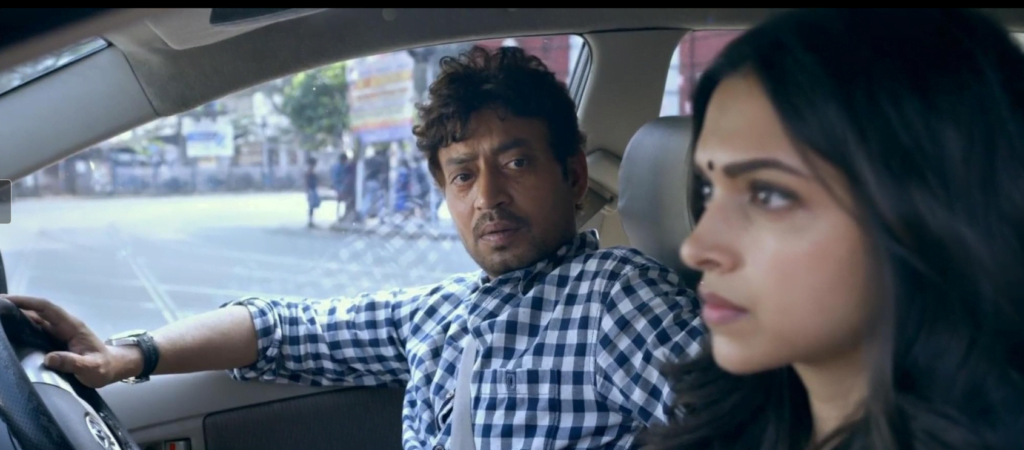
The backdrop to Rana’s life is equally fascinating as they boast of a loud mother and a fiery sister, both of whom display no remorse over staying with him. The mother doesn’t lament over her son and the sister has been abandoned by her husband for stealing her mother-in-law’s necklace. No explanation is given for these stories, they just exist, in the multiverse of chaos that transpires between the three main characters.
While there is an urgent need to view female characters rooted in the pursuit of liberation against the status quo, Piku contributes to a different archive in itself, the archive of the banal and the mundane, centring the life of a woman who is often deemed difficult and barely amicable.
The story very quietly underlines that Piku’s partner in the film sleeps over sometimes, and there doesn’t seem much to it beyond the physical, while others insist on her marriage, she is rarely seen addressing this. Her interiority shines through in her inaction, the inaction and the lack of desperation reflected in her character makes for a close inspection of female interiority revelling in the mundane.
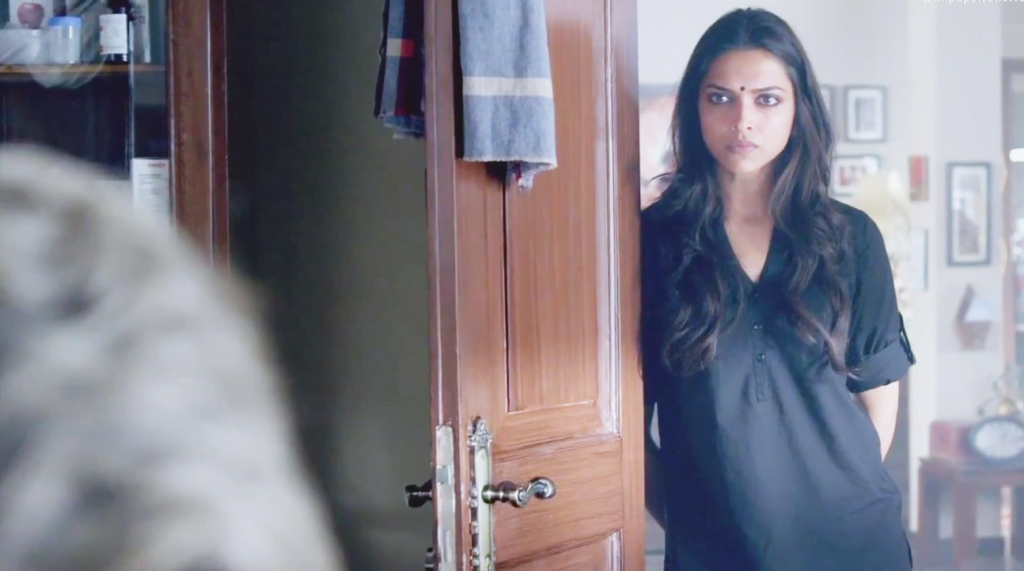
The film’s beauty lies in the fact that it is not moralistic, and never preachy. There is no glaring poorly done social commentary that comes through, neither are the women of the film seen delivering sermons against the status quo – the beauty of cinema isn’t rooted in didactic monologues but in the plain existence of difficult women.
The complex female character is left as is, she softens up to Rana gradually but this doesn’t change her fundamentally, their lives are affected by each other and never compromised. Piku doesn’t villify this difficulty, it presents us with the alternate reality of many women hardened by their daily routines, and they exist as is – this existence isn’t accentuated or double quoted, and little to no attention is drawn to its criticism. The film’s appeal lies in how it delicately deals with the lives of daughters and women, split right in the middle.
About the author(s)
Rida Fathima is a twenty-year-old Literature student at Azim Premji University with an interest in literary theory, film criticism, Marxist historiography and oral archives. She is interested in critiquing and analysing media through a feminist anti-capitalist lens.
